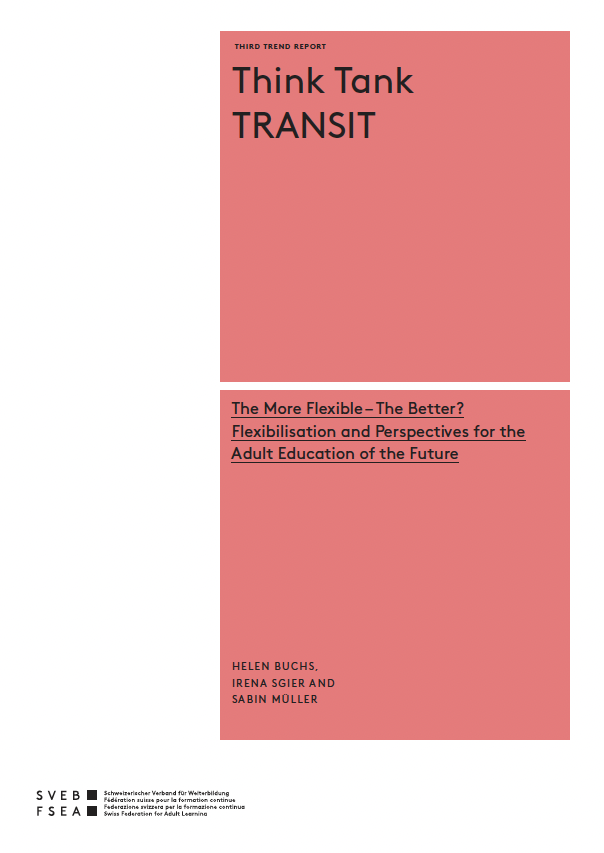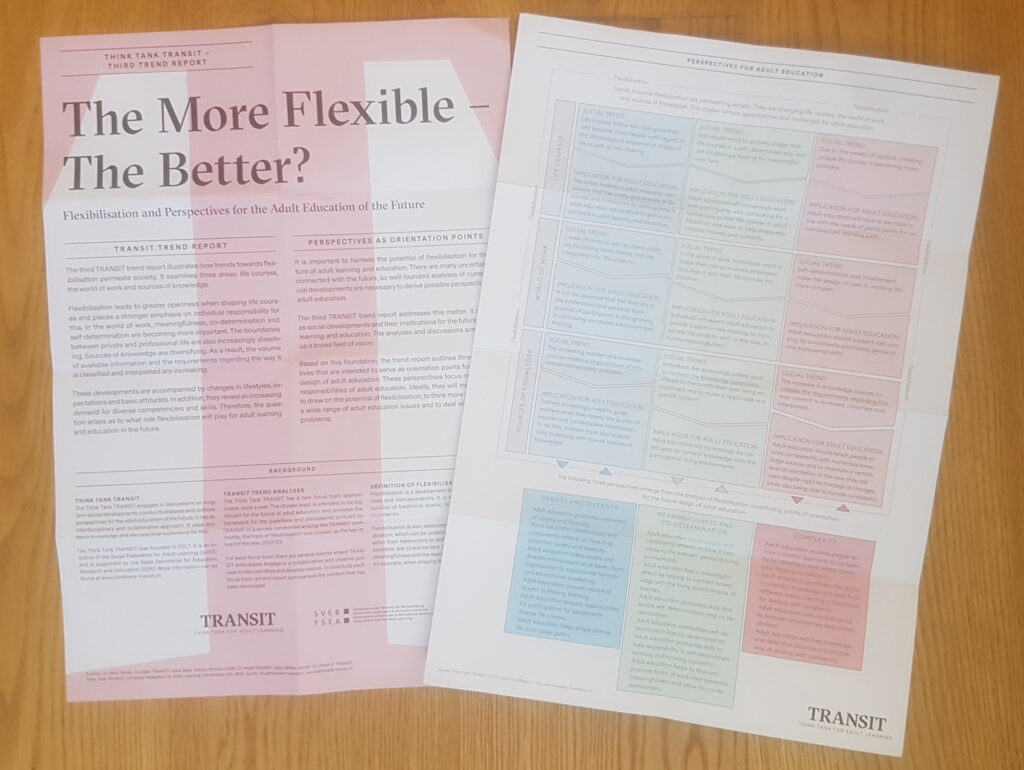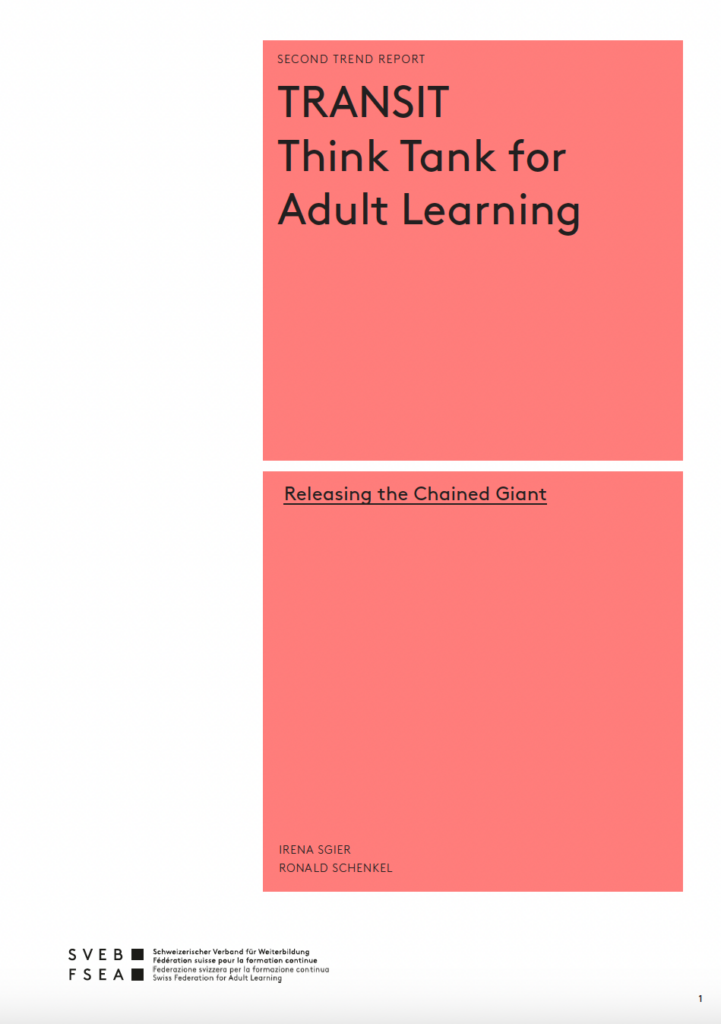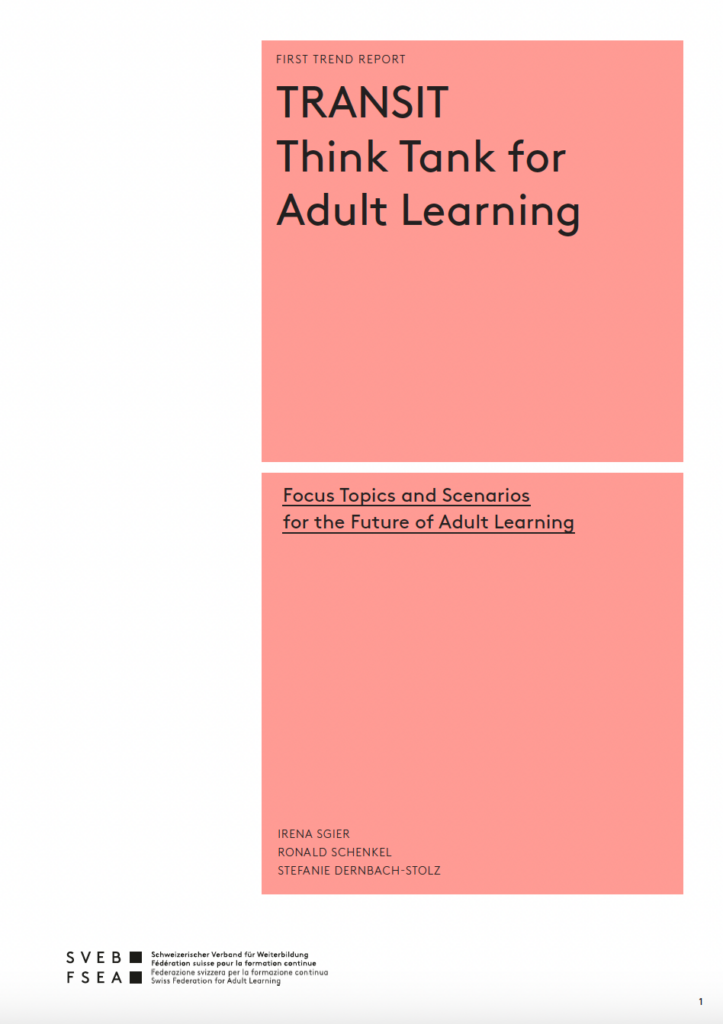Trend Reports
TRANSIT publishes trend reports on the future of continuing education. The publications are available in various languages and freely available as downloads.
2023: Third Trend Report: The More Flexible – The Better?

Over several months, TRANSIT has dealt intensively with the topic of flexibilisation. The latest trend report entitled “The more flexible – the better?” concludes the topic.
In the first part, the report discusses flexibilisation trends in the three areas of “life courses”, “world of work” and “sources of knowledge”. The second part discusses implications for adult education and poses questions to adult education stakeholders that are intended to stimulate deeper reflection.
Based on this discussion, the authors derive perspectives for adult education of the future. These are “plurality and diversity”, “meaningfulness and co-determination” and “complexity”. Ideally, the perspectives will inspire people to draw on the potential of flexibilisation, to think more deeply about a range of questions of adult learning and education and to solve upcoming problems.

Flexibilisation trends and their impact on continuing education at a glance: The flyer for download.
2020: Second Trend Report: Releasing the Giant

A notable aspect of adult education is its particular focus on professional skills, combined with a public discourse that categorises continuing education and professional development as a literal survival strategy for the individual and society. Against this background, the qualities of cultural education remain largely obscured, as do the potential contributions that training and education might make with regard to radical shifts such as climatic change or an ageing society.
Cultural education and processes of change
TRANSIT is therefore proposing a new emphasis within adult learning whereby cultural education is re-evaluated and its potential is also discussed in the context of professional development. In addition, TRANSIT argues that more room should be given to education focused on processes of change, particularly since our response to radical change requires a form of education that helps to solve complex problems, whether at the individual, organisational, community, social or global level.
Digitalisation
In turn, digitisation has long been a persistent topic in the sphere of continuing education. The prohibition of classroom teaching as a consequence of the Coronavirus pandemic has, however, given real impetus to the process of digitisation. This impetus is now highlighting the fact that the educational sector still needs to find an appropriate way of integrating digital technologies into its teaching and learning settings.Once the Coronavirus pandemic is over and the restrictions on classroom teaching have been lifted, a new balance will need to be found between the digital learning platforms and face-to-face teaching. This process should also include an analysis of the advantages and disadvantages of different formats. The sector must also adjust to the fact that the requirements of learners as customers – along with their habits and expectations – will have changed during the pandemic. How long these changes will last will become clear over the coming months. The impetus given to digitisation by the current crisis is not going to leave the education and training sector unmarked.In our second trend report, TRANSIT is therefore calling for an open yet critical attitude to the adoption of digital technologies in adult education – critical, because adult learning will always, in its essence, also be a social process, a fact that has to be taken into account in the process of digital transformation.
2019: First Trend Report: Focus Topics and Scenarios for the Future of Adult Learning

Irena Sgier and Ronald Schenkel, have finalised a first trend report, in which they summarise the work of the last years. The trend report provides information about the why of the think tank, its way of working, but above all it informs about the work on the future scenarios and the resulting tube map of adult learning. For all those who want a complete overview it is a valuable source of information.